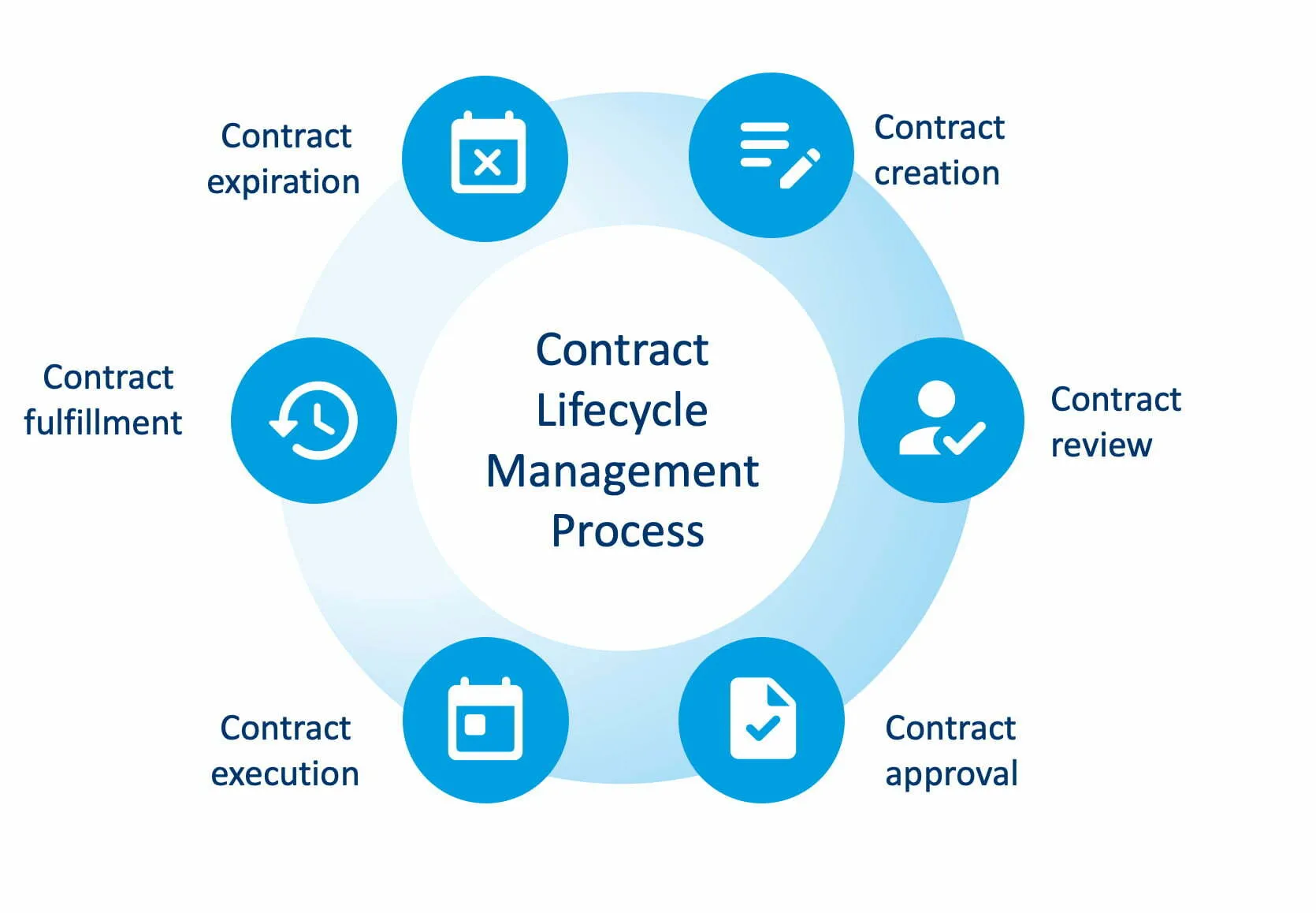Contract Lifecycle Management Services
Contracts are the foundation of business relationships, governing agreements, obligations, and rights between parties. Managing contracts effectively throughout their lifecycle is crucial for minimizing risks, maximizing opportunities, and ensuring compliance with legal and regulatory requirements. Contract lifecycle management (CLM) services play a pivotal role in streamlining the contract process, from creation and negotiation to execution and renewal. In this comprehensive guide, we will explore the importance of CLM services, examine key components of the contract lifecycle, and discuss strategies for optimizing efficiency in contract management.
Understanding Contract Lifecycle Management:
Contract lifecycle management (CLM) refers to the systematic process of managing contracts from initiation to execution and beyond. CLM encompasses a range of activities, including contract creation, negotiation, approval, execution, monitoring, and renewal. CLM services leverage technology, automation, and best practices to streamline the contract process, enhance collaboration, and mitigate risks associated with contract management.
Key Components of Contract Lifecycle Management:
- Contract Creation: The contract creation phase involves drafting, reviewing, and finalizing contracts to ensure clarity, accuracy, and enforceability. CLM services facilitate efficient contract drafting by providing templates, standard clauses, and version control features. Advanced CLM software may also include contract authoring tools with built-in compliance checks and legal guidance to streamline the drafting process.
- Contract Negotiation: Contract negotiation is a collaborative process involving discussions, revisions, and amendments to reach mutually acceptable terms and conditions. CLM services support efficient contract negotiation by enabling real-time collaboration, document sharing, and tracking of changes. Advanced CLM platforms may include negotiation workflow capabilities, allowing parties to exchange comments, propose revisions, and track negotiation progress seamlessly.
- Contract Approval: The contract approval phase involves obtaining authorization and sign-off from relevant stakeholders, such as legal, finance, and management. CLM services facilitate efficient contract approval by automating approval workflows, notifying stakeholders of pending approvals, and providing audit trails for accountability and compliance purposes. CLM software may include customizable approval workflows with predefined roles, permissions, and escalation paths to ensure timely approval and reduce bottlenecks.
- Contract Execution: The contract execution phase involves signing the contract and making it legally binding. CLM services streamline contract execution by offering electronic signature capabilities, document storage, and integration with third-party e-signature platforms. Advanced CLM software may include digital signature functionality with built-in authentication and encryption features to ensure the integrity and security of signed contracts.
- Contract Monitoring and Compliance: The contract monitoring and compliance phase involves tracking contract performance, obligations, and milestones to ensure compliance with contractual terms and regulatory requirements. CLM services enable proactive contract monitoring by providing alerts, notifications, and reporting capabilities. CLM software may include dashboards with customizable KPIs, automated reminders for key dates and deadlines, and compliance tracking features to monitor contract performance and mitigate risks.
- Contract Renewal and Termination: The contract renewal and termination phase involves assessing contract performance, renegotiating terms, and either renewing or terminating the contract at the end of its term. CLM services facilitate efficient contract renewal and termination by providing insights into contract performance, renegotiation options, and termination clauses. CLM software may include contract renewal workflows, automated notifications for contract expirations, and analytics tools to evaluate renewal opportunities and risks.
Importance of Contract Lifecycle Management Services:
- Risk Mitigation: Effective CLM services help mitigate risks associated with contract management, such as missed deadlines, non-compliance, disputes, and financial losses. By centralizing contract data, automating approval workflows, and providing real-time visibility into contract status and performance, CLM services enable organizations to identify and address potential risks proactively.
- Cost Savings: CLM services drive cost savings by optimizing contract processes, reducing manual errors, and minimizing inefficiencies associated with contract management. By streamlining contract creation, negotiation, and approval, CLM services improve productivity, reduce administrative overhead, and lower operational costs associated with contract management.
- Compliance and Governance: CLM services ensure compliance with legal, regulatory, and internal governance requirements by enforcing standardized contract templates, approval workflows, and compliance checks. By centralizing contract data, maintaining an audit trail of contract changes, and providing real-time reporting and analytics, CLM services enable organizations to demonstrate compliance and mitigate legal and regulatory risks.
- Enhanced Collaboration: CLM services foster collaboration and communication among stakeholders involved in the contract process, such as legal, procurement, finance, and sales teams. By providing a centralized platform for document sharing, negotiation, and approval, CLM services facilitate seamless collaboration, improve decision-making, and enhance transparency throughout the contract lifecycle.
- Improved Efficiency and Productivity: CLM services improve efficiency and productivity by automating manual tasks, streamlining workflows, and eliminating redundant processes associated with contract management. By reducing the time and effort required to create, negotiate, approve, and monitor contracts, CLM services free up resources, enhance productivity, and enable organizations to focus on strategic initiatives and value-added activities.
Engage with Dhiti Law firm:
Contract lifecycle management (CLM) services play a critical role in optimizing efficiency, mitigating risks, and ensuring compliance throughout the contract lifecycle. By streamlining contract processes, enhancing collaboration, and providing real-time visibility into contract status and performance, CLM services enable organizations to maximize the value of their contracts, minimize risks, and achieve strategic objectives. With the right CLM strategy and technology in place, organizations can unlock the full potential of their contract management processes, drive operational excellence, and gain a competitive edge in today’s dynamic business environment. As organizations continue to prioritize efficiency, compliance, and risk mitigation, investing in CLM services will become increasingly essential for driving business success and achieving long-term growth.


